Medical management of withdrawal symptoms is a vital part of the recovery journey. A medically managed withdrawal stretches beyond the need to control initial cravings, as patients could face life-threatening symptoms during this strenuous period.
But what exactly is a medically managed withdrawal? And why is it so important? Let’s take a look into it!
What Are Withdrawals?
Withdrawal symptoms are a sign that addiction has developed beyond a psychological craving and turned into physical dependence. Meaning the addict has developed a chemical dependence on the substance.
The greatest telltale of physical dependence is the appearance of withdrawal symptoms. These symptoms occur when an addict stops taking a substance suddenly. Because the body is used to the substance, it reacts negatively to its absence.
Withdrawal symptoms can be life-threatening if not managed properly, not to mention challenging and frightening. Symptoms of withdrawal may also be accompanied by high cravings that addicts cannot manage, leading them to relapse.
This is why addicts with physical dependence tend to require a medically managed withdrawal
in order to achieve sobriety. If you are addicted to drugs, you should seek professional help for a safe and effective withdrawal process.
Withdrawal Symptoms
Withdrawal symptoms greatly vary depending on the substance that was consumed and how severe the addiction is.
While withdrawal symptoms vary greatly from case to case, there are some that are shared across the board. These include:
- Rebound effects
- Decreased tolerance
- Depression
- Extreme Cravings
- Seizures or Tremors
How Long Can a Withdrawal Last
The length of withdrawal is not set in stone. Depending on the type and frequency of abuse of the substance, withdrawal can last a considerable amount of time.
For example, cocaine and amphetamines can cause withdrawal symptoms that last anywhere from a week to a month. In the case of opiates, withdrawal symptoms peak within 72 hours and then gradually subside.
As a general rule, withdrawal symptoms usually begin one to three days after the last use of the substance, peaking between two and four days later.
Withdrawal timelines are also influenced by other factors:
- Amount taken
- Method of ingestion
- Combining it with other substances
- Length of substance abuse
- Personal profile of tolerance
There are generally three stages to withdrawal timelines:
- Acute
- Protracted
Post-acute.
What is Withdrawal Management
Withdrawal management, also known as detoxification or detox, is a practice that involves the physical and psychological care of patients who are experiencing withdrawal symptoms.
The practice is meant to ensure the well-being of the patient through the detoxification process and prepare them for the next steps in their recovery journey such as rehab or therapy.
What Can Patients Expect
Upon joining a medically managed withdrawal program, patients can expect to first and foremost be stabilized and assessed.
After receiving an assessment and being medically stabilized, medical staff will focus solely on the management of withdrawal symptoms. In order to achieve this they could employ pharmacological strategies that can help treat symptoms and tamper down the substance in a subtle way so that it might not cause severe withdrawal symptoms.
For example, opioid addicts could receive pharmacological management to tamper down by being provided one of three medications; Methadone, Buprenorphine, or Naltrexone.
In the case of alcoholics, Benzodiazepines are employed to help patients avoid seizures of delirium tremens.
The entire detox process usually lasts between 24 and 72 hours, but it will be highly dependent on the substance the patient is addicted to and the severity of the dependence.
In addition to medication, withdrawal management may also include nutritional, hydration, and emotional support.
Getting Into Detox
Quitting alcohol or drugs on your own can be challenging and even dangerous. Now that you know more about withdrawals and the management of withdrawal symptoms, you might want to seek professional help to manage your condition.
90210 Recovery offers medically managed withdrawal for addicts who have become physically and psychologically dependent on substances.
Contact us today and speak to an admission specialist that can help you or your loved ones get into a medically managed withdrawal program today.


